GwinnettForum | Number 20.01 | April 3, 2020
COLORFUL TIMES: It doesn’t matter where you go around Gwinnett County these days, you’ll find the azaleas about at their peak of blooms. Roving Photographer Frank Sharp captured this turn of the sidewalk at Vines Garden Park near Loganville. Time for you to get outside your own home, walk around and explore your neighborhood (staying six feet away from others), and enjoy the color that will greet you.
As we enter Year 20, thank you for your support, readership
 Today’s edition marks the beginning of the 20th year of publication of GwinnettForum. We could not do this without the loyal support of our underwriting supporters, who make this online social media publication possible. Nor could we do it without the continual contribution of readers, like you. Your stories, pictures, letters, opinion and other feedback are both thrilling and appreciated by GwinnettForum. We remember the Bartels and James television commercials ending (as we today think), saying, “Thank you for your support.”
Today’s edition marks the beginning of the 20th year of publication of GwinnettForum. We could not do this without the loyal support of our underwriting supporters, who make this online social media publication possible. Nor could we do it without the continual contribution of readers, like you. Your stories, pictures, letters, opinion and other feedback are both thrilling and appreciated by GwinnettForum. We remember the Bartels and James television commercials ending (as we today think), saying, “Thank you for your support.”
TODAY’S FOCUS: Order in the Courts Continues During Judicial Emergency
EEB PERSPECTIVE: Will Current Dilemma Cause Georgia To Consider Voting By Mail?
ANOTHER VIEW: Trucking Industry Vital In Emergency Times Like These
SPOTLIGHT: Gwinnett Clean and Beautiful
FEEDBACK: Applauds Gwinnettians for Willingness to Comply with Restrictions
UPCOMING: Good Attendance at Gwinnett Rotary Club First Virtual Meeting
NOTABLE: Gwinnett Salvation Army Helping Those Struggling with COVID-19
RECOMMENDED: The Blue Diary by Alice Hoffman
GEORGIA TIDBIT: Civil Rights Leader Joseph Lowery Had Distinguished Career
MYSTERY PHOTO: What’s The Name and Location of This Bridge?
Order in the courts continues during judicial emergency
By Judge Pamela South,
State Court of Gwinnett
LAWRENCEVILLE, Ga. | Judges, much like the public, have seen the onset of the COVID-19 and its disruption slowly unfold in courtrooms across the state. We have certainly been used to an influenza season and the constant routine of hand washing during the winter months. However, starting in February, the situation changed and was different. Handwashing became much more frequent; people with illnesses or cold were rescheduled in court, and hand sanitizer plus handwashing became the new norm.
Then, with the new hazards of the COVID-19, a judicial emergency was declared by Superior Court Judge George Hutchinson, on March 13, which limited court to all but essential matters (i.e., concerns of immediate or safety.) The Supreme Court of Georgia followed on March 14 with a statewide order of judicial emergency, limiting courts across the entire state to essential matters until April 13.
Although in an extremely limited capacity, our Gwinnett courts are still functioning under the guidelines of the Supreme Court. Inmates are having matters heard by a heroic team of magistrates, who act in their own capacity as judges on the front line of criminal cases: warrants, search warrants, first appearance hearings, and preliminary hearings.
 Magistrate Court Chief Judge Kristina Blum also has judges by designation acting as Superior and State court judges at the jail in some specific calendars at the county detention center. And Superior and State court judges have set up a “video court” process at the Gwinnett Justice and Administration Center to deal with matters that cannot be heard at our detention center. The judges are also actively exploring using additional technology to conduct remote hearings under Constitutional and Georgia Supreme Court guidelines.
Magistrate Court Chief Judge Kristina Blum also has judges by designation acting as Superior and State court judges at the jail in some specific calendars at the county detention center. And Superior and State court judges have set up a “video court” process at the Gwinnett Justice and Administration Center to deal with matters that cannot be heard at our detention center. The judges are also actively exploring using additional technology to conduct remote hearings under Constitutional and Georgia Supreme Court guidelines.
Our court employees are working remotely to essentially maintain existing dockets and to provide timely information to those who need it. County prosecutors and defense counsel are actively trying to resolve what cases they can resolve outside the court system, attending to jail calendars and inmates often seven days a week. Other agencies, including local police and our deputy sheriffs, provide much needed routine services to the public and the courts in the midst of the pandemic.
Courts function much in the way of other organizations, and the current uncertainty has slowed, but not stopped, the wheels of justice.
Now, on a positive note, we have seen the best of the system unfold, with lawyers and judges actively working together to provide the public with access to an essential component of our government: the courts.
- Have a comment? Send to: elliott@brack.net
Will dilemma cause Georgia to consider voting by mail?
By Elliott Brack
Editor and Publisher, GwinnettForum
APRIL 3, 2020 | Any time a situation is developing, once a leader has the facts, a good leader acts quickly.
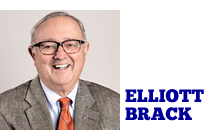 That’s what Georgia Secretary of State Brad Raffensperger did in mailing absentee ballot applications to all Georgia voters this week. Anticipating continual coronavirus problems possible on the May 19 Georgia primary, he took action to allow voters, if they choose, to vote by absentee ballot, which is essentially voting by mail.
That’s what Georgia Secretary of State Brad Raffensperger did in mailing absentee ballot applications to all Georgia voters this week. Anticipating continual coronavirus problems possible on the May 19 Georgia primary, he took action to allow voters, if they choose, to vote by absentee ballot, which is essentially voting by mail.
The Secretary of State’s immediate action is distinctly different from what many leaders show in reaction to coronavirus threats. Raffensperger anticipated a problem, thought through it, and quickly made provisions to curb problems immediately. For this, he should be commended by all. (Even if the state postpones the primary, and we hope it won’t, his move to allow people to stay away from the polls yet cast a ballot is far-sighted.)
All this brings to mind a far-off possibility for Georgia that has already been adopted by two states, and tried in three others. In 1998 voters in Oregon passed legislation allowing all elections to be conducted by mail, commonly called “Vote by Mail.” The first year that this took place was in 2000, and since then, it has worked remarkably easily in Oregon. Today the State of Washington also conducts all its voting by mail, while three other states, Colorado, Hawaii and Utah, mail ballots each year to voters.
As a result, Oregon leads the nation in the percentage of those registered voting, at 80-85 percent in the general election in presidential years.
Tim Scott, director of elections for Multnomah County (the biggest county in Oregon, where Portland is located), says it works smoothly. He says: “After 20 years of voting by mail in Oregon, the voters are satisfied, and those of us who administer the mail-in voting are also satisfied very well. Oregon is consistently in the top five in the nation for turnout.”
Multnomah County is similar to Gwinnett in that it has 550,000 registered voters (Gwinnett has 565,428). Scott says: “There are efficiencies from centralization of voting. In Multnomah County, it takes about 150 people to help process the ballots. They have to open the mailed-in ballots, verify each ballot’s signature, scan and tally the ballot. In presidential years, 40-50 percent of ballots come in the last four days.”
On election nights, when voting ceases at 8 p.m., Scott can in the next minute release the results of the 50-60 percent that have been tallied, and post those results online. Scott says that “Media uses this to “call” elections, which most of the time do not change dramatically. However, to count the remaining ballots usually takes another two days before the final results totaled.”
Prior to living in Oregon, Scott ran elections in Virginia. “I would much rather run mail-in elections than having polling places to operate one election day. The training is much easier to lead, the equipment is easier to operate, and all the logistic complications don’t happen with vote by mail.
Scott adds: “And now with the complications of coronavirus, this would bring hordes of people to polling places on election day. So now that would be really difficult in keeping people apart. I feel for the states that still do most of their voting on election day.”
Will Georgia ever consider vote by mail? The coronavirus difficulties might change some thinking about voting in person! At least Oregon, plus Washington, are finding vote-by-mail workable…and easier.
- Have a comment? Send to: elliott@brack.net
Trucking industry vital in emergency times like these
By John Souter
President, Comet National Shipping Corporation
LILBURN, Ga. | Initially, when the word of this coronavirus hit the media, as many others, I did not know quite what to make of it. I remember hearing remarks about it being related to Corona beer and being just an anomaly in some remote region in China- perhaps from eating things that most westerners could not fathom eating.
In short it was once again somebody else’s problem. I was amazed at how the financial markets continued to dismiss any threat of this virus from Wuhan having any potential to impact our finances much less our life as we know it. I recall hearing a gentleman at the Gwinnett Rotary speaking about companies being proactive in terms of ensuring that they have the ability to work remotely.
It was certainly food for thought, but I must admit that it wasn’t on top of the list of my priorities. I’m ashamed to admit that my peers and I downplayed the threat and chalked it up as just another irrational fear that runs through the mainstream media until everything changed.
Then a man from Washington state contracted the virus and passed away. Suddenly, our American fishbowl was broken. Now it was our problem, right here on American soil!
We weren’t as immune as we thought we were. The detractors started to fade. A light switch was turned on.
My first impulse was to ask myself how it was going to affect my logistics company, our employees and quite frankly, the company finances. It dawned on me that Comet National was listed with FEMA after Hurricane Katrina and had not given it a second thought since after the tragedy.
During Katrina, FEMA coordinated water and toiletries transported to the affected areas. Production was backed up, so truckers had to be prepared to pick up items from distant facilities that had the product available on a just-in-time basis.
This will no doubt happen in the COVID-19 crisis. For example, an idled Tesla plant in Buffalo, N.Y. is now manufacturing ventilators that will be shipped to New York City. Trailers will need to be spotted at the facility, so that at the moment the trailer is filled, a driver must hightail it to the hospital in need, probably within New York City.
 Meanwhile, recently the Federal Government relaxed its policy until April 12 on the recently-mandated restrictions on service hours allowed by drivers via the electronic log systems. That policy had restricted the time a driver is allowed to spend on the road without shutting down for rest.
Meanwhile, recently the Federal Government relaxed its policy until April 12 on the recently-mandated restrictions on service hours allowed by drivers via the electronic log systems. That policy had restricted the time a driver is allowed to spend on the road without shutting down for rest.
Unfortunately, FEMA is an organization that receives little attention until it receives loads of it.
Our company has now taken measures to mobilize the limited but valuable resources we have to be a part of the effort to assist the world in fighting this pandemic. Through utilization of information technology and valued partnership, our goal is simple.
It is going to be a balancing act of deploying trucks pick up from companies that have equipment and/or any resources to aid the areas (hot spots) that are in dire need to receive help. These lanes will change from day to day, week to week and month to month.
This is the task at hand for Comet National and countless other transportation companies throughout the United States and the world, to balance the need to assist in whatever small way we can while ensuring that our own employees are safe.
I could not wrap my mind around the thought of trying to accomplish this without the technology we have today and most importantly, the spirit that we have as people with a common enemy. We will get through this and we will be better off for it. Perhaps this may boost global trade relations after we have moved passed through this pandemic, put safety measures in place and above all, realize that we were all in this together.
- Have a comment? Send to: elliott@brack.net
Gwinnett Clean and Beautiful
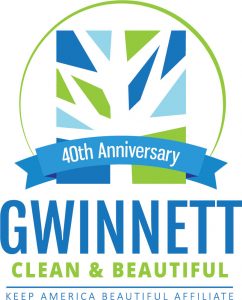 The public spiritedness of our sponsors allows us to bring GwinnettForum.com to you at no cost to readers. Today we welcome a new underwriter, Gwinnett Clean and Beautiful, a Keep America Beautiful affiliate and award-winning 501(c)(3) charitable organization that boasts an expansive community-based network dedicated to finding long-term solutions to environmental and quality of life issues through individual action. Guided by a Citizens Advisory Board representing all sectors of the county, GC&B is a nationally recognized leader in creating cleaner, greener and more livable communities, involving more than 100,000 volunteers annually to clean and restore public places, recycle more, protect watersheds and develop the next generation of environmental stewards. To learn more about Gwinnett Clean & Beautiful and its mission of “Connecting People and Resources for a Sustainable Gwinnett,” please visit www.GwinnettCB.org
The public spiritedness of our sponsors allows us to bring GwinnettForum.com to you at no cost to readers. Today we welcome a new underwriter, Gwinnett Clean and Beautiful, a Keep America Beautiful affiliate and award-winning 501(c)(3) charitable organization that boasts an expansive community-based network dedicated to finding long-term solutions to environmental and quality of life issues through individual action. Guided by a Citizens Advisory Board representing all sectors of the county, GC&B is a nationally recognized leader in creating cleaner, greener and more livable communities, involving more than 100,000 volunteers annually to clean and restore public places, recycle more, protect watersheds and develop the next generation of environmental stewards. To learn more about Gwinnett Clean & Beautiful and its mission of “Connecting People and Resources for a Sustainable Gwinnett,” please visit www.GwinnettCB.org
- For a list of other sponsors of this forum, click here.
Applauds Gwinnettians for complying with restrictions
Editor, the Forum:
![]() As an 81-year-old at-risk citizen, I applaud my fellow Gwinnettians for their remarkable willingness to comply with all the restrictions associated with COVID-19. I feel safer as a result.
As an 81-year-old at-risk citizen, I applaud my fellow Gwinnettians for their remarkable willingness to comply with all the restrictions associated with COVID-19. I feel safer as a result.
On the other hand, I question those who have voted for representatives whose belief in limited government has left us unprepared for a pandemic. We need a competent and well-funded government to protect our well-being. What we have now is an ill prepared group of politicians floundering to keep up to the dangers that were predicted by our intelligence community, but they did not heed. That’s poor government.
— Alan Schneiberg, Sugar Hill
Recent edition of Forum was something like a fresh shower
Editor, the Forum:
The recent edition (March 31) for GwinnettForum was likened to a fresh spring shower . It’s good to see that even in crisis we still attend to the needs of the less fortunate. Some don’t realize there are school children who would go hungry except for the school breakfast and lunch programs.
To see these bus drivers take personal risk to continue to serve the community makes us all appreciate how important it is to help those who help others. We can be a part of this with our financial support and moral support. In Duluth, First Baptist and other churches are taking up the slack for B. B. Harris School children that are affected by both the quarantine and Spring break .
There wasn’t too much by the way of politics in this issue…which is okay but we still need debate and a public forum.
— John Moore, Duluth
Applauds efforts by government officials, public
Editor, the Forum:
I applaud most of our efforts both by government officials and most of the general public.
I wonder about one thing at a very local level. County corrective and preventive measures apply to the entire county whether you live inside an incorporated municipality or not. Last I looked, about 70 percent of the county population resided in unincorporated areas.
I live in unincorporated Lawrenceville, so my question. Do my and other unincorporated areas fall under only Gwinnett county measures and not any municipal measures or not?
And, I do consider this question more academic than anything else. Just wondered.
— Stewart Woodard, Lawrenceville
Dear Stewart: You want to be the guinea pig, and violate all the current rules, and find out which police arrest you? Give us a call from the jail when you do. (Seriously, observe both recommendations.)—eeb
Send us your thoughts: We encourage you to send us your letters and thoughts on issues raised in GwinnettForum. Please limit comments to 300 words. We reserve the right to edit for clarity and length. Send feedback and letters to: elliott@brack.net
Good attendance at club’s 1st virtual meeting
The Gwinnett Rotary Club held its first virtual meeting as a result of the coronavirus at its regularly scheduled time at midday Tuesday, March 31.
 Jennifer Hibbard, president of the club, said that 67 of the club’s 106 members joined in a Zoom tele-conference on Tuesday via computer or telephone.
Jennifer Hibbard, president of the club, said that 67 of the club’s 106 members joined in a Zoom tele-conference on Tuesday via computer or telephone.
Hippard says: ““We have missed getting together with our Rotary Family. This was a great way to stay connected and safe during this public health emergency.”
Many of the same features of an in-person meeting took place: prayer, pledge of allegiance, update on coronavirus from club member Dr. Audrey Arona, and a presentation by one of the club members, Dr. Tom Upchurch, of a program, complete with accompanying photographs.
“It took place at the same time as our regular meeting, at 12:15, while our members were at their home or office having their own prepared meal,” Hibbard said. The club meets regularly at the 1818 Club each Tuesday. Hibbard said that Gwinnett Rotary plans a similar Zoom meeting on April 7.
Gwinnett establishes COVID-19 emergency order call center
Gwinnett’s Department of Planning and Development has established a COVID-19 Gwinnett Emergency Order Hotline call center. The call center’s purpose is to take residents’ questions and to report violations related to COVID-19 local emergency orders.
The call center number is 770-822-7399 and will be open Monday through Friday, from 8 a.m. until 7 p.m. After business hours, residents are encouraged to send reports through email addresses that were previously established including GC-License-Revenue@gwinnettcounty.com and ReportViolation@gwinnettcounty.com.
The county has also posted a Stay-at-Home Order FAQs page on their website that provides helpful information and will be updated with additional questions and answers as they become available.
Lawrenceville DAR chapter helping by producing face masks
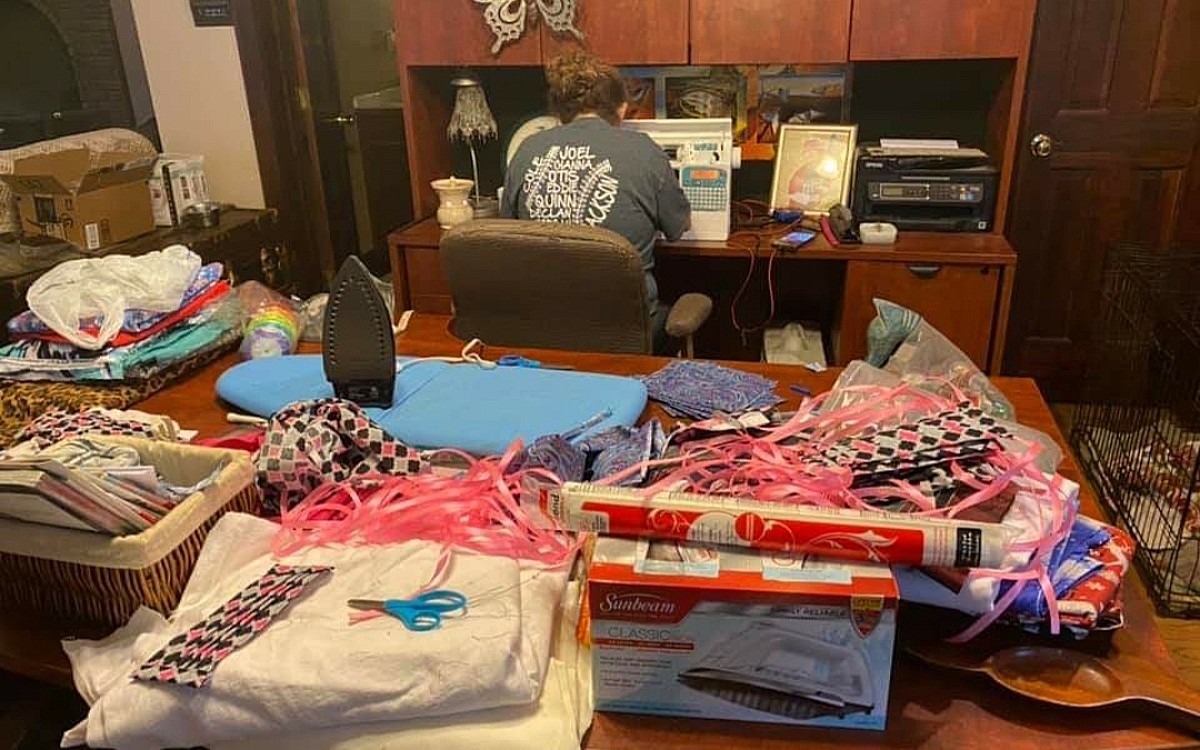
It takes a lot of material, ribbon, patience and skill to make a simple face mask. Christi Opstad has her back to the camera, but look at all the items and material on the table awaiting her!
The Philadelphia Winn Chapter of the Daughters of the American Revolution has come together to support the medical personnel and patients by producing handmade face masks.
So far nationally, 23,545 masks have been provided as of April 2, with 45 states reporting. This nation-wide shortage of masks prompted an aunt to reach out to her niece for help in obtaining handmade masks for 120 employees and patients at a nursing home and trauma center. This niece was Christi Opstad of Dacula, a member of the Philadelphia Winn DAR Chapter in Lawrenceville, who with her husband operate Indian Shoals Pet Resort.
With this initial request for 120 masks, followed by additional inquiries on FaceBook, Christi knew that she would need assistance providing larger quantities, and time was of the essence. She reached out to her fellow Philadelphia Winn members and “DAR Daughters” joined her by cutting, sewing, packaging, and shipping masks, not only donating their time, but also providing the supplies and the cost of shipping. Several members have established personal goals to complete 100 masks each week.
The Philadelphia Winn members that have already contributed masks for distribution are Christi Opstad, BethAnn Beuhler, Julianne Gross, Joyce Goodbread, and Lynn Jacques. Other members are planning on working on their initial quantity.
Two basic types of masks are currently being provided, one of which has a pocket to allow the healthcare worker to add their own N95 mask, and the other which does not include a pocket. Both versions of handmade masks may enable the hospitals and medical facilities the opportunity to conserve the medical-grade N95 masks for the riskiest patient care.
Salvation Army helping those struggling with COVID-19
The Salvation Army of Gwinnett is responding to people struggling with the impacts of the COVID-19 pandemic. While following safety guidelines from government and health officials. Salvation Army service delivery processes have been modified to protect the public health including drive-through food distribution centers and community-based food delivery through mobile kitchens/canteens.
With recent indefinite school closures and workforce layoffs because of COVID-19, homeless and precariously housed families are at most risk of poor health outcomes due to a lack of safe housing and an insecure, unstable food supply. The Salvation Army of Gwinnett reports a rapid increase in requests for immediate sheltering and food among vulnerable populations.
A key player in the fight against homelessness in Gwinnett County, the Salvation Army is positioned to arrange for emergency housing, keep at-risk families in their current homes with rent/utility assistance, and provide much needed food supplies. The organization’s Home Sweet Home Gwinnett program and other Homelessness Prevention programs serve men, women and families with children; housing is provided for anyone in need, regardless of age, race, sexual orientation, gender identification, or faith.
To make a financial contribution to The Salvation Army of Gwinnett County’s COVID-19 relief efforts, visit www.salvationarmyatlanta.org or contact Perry Dillman at perry.dillman@uss.salvationarmy.org.
Hospital gets 5,000 surgical masks from developer
McKinley Homes is donating 10,000 surgical, surgical face masks and 500 N95 face masks to hospitals in need. Nico Dowdy, McKinley Homes marketing assistant, delivers the masks to Gina Solomon, Northside Hospital Gwinnett Trauma Program Director. Northside Hospital Gwinnett will receive 5,000 surgical masks and Emory University Hospital will receive 5,000 surgical and 500 N95 masks to assist their battles against the spread of COVID-19. McKinley Homes, the developer of multiple residential communities throughout metro Atlanta.
The Blue Diary by Alice Hoffman
![]() From Karen Harris, Stone Mountain: This is a story about devotion, truth can be stretched, snarled and enmeshed when an evil deed is revealed, and the previous world forever swept away. The perpetrator is a man so admired that reverence defines how the townspeople feel about him. His marriage is a fairy tale that arouses the envy and embarrassment due the openly demonstrative affection they show each other. All this changes when a knock on their door one morning upends their lives and dark secrets emerge in a nightmarish flood reshaping the lives of everyone in the town which undergoes an existential crisis. Alice Hoffman readers will be unable to put down the title until it ends due to her fluid and descriptive writing style and her ability to describe the feelings of the characters. This is not an easy read as the subject matter is heart rendering. Still it is worth the reader’s time.
From Karen Harris, Stone Mountain: This is a story about devotion, truth can be stretched, snarled and enmeshed when an evil deed is revealed, and the previous world forever swept away. The perpetrator is a man so admired that reverence defines how the townspeople feel about him. His marriage is a fairy tale that arouses the envy and embarrassment due the openly demonstrative affection they show each other. All this changes when a knock on their door one morning upends their lives and dark secrets emerge in a nightmarish flood reshaping the lives of everyone in the town which undergoes an existential crisis. Alice Hoffman readers will be unable to put down the title until it ends due to her fluid and descriptive writing style and her ability to describe the feelings of the characters. This is not an easy read as the subject matter is heart rendering. Still it is worth the reader’s time.
An invitation: Is Karen Harris the only person reading these days? Isn’t it time for you to write down a review of a book, restaurant, movie or sites that you have enjoyed recently? Send us what you recently enjoyed, in a short paragraph (150 words) as to why you liked this, plus what you plan to visit or read next. Send to: elliott@brack.net
Civil rights leader Joseph Lowery had distinguished career
The Rev. Joseph Lowery, who died last week, was a distinguished civil rights leader and respected Methodist minister who, along with Martin Luther King Jr., helped to organize the Southern Christian Leadership Conference (SCLC). Referred to as the “dean of the civil rights movement,” Lowery served as SCLC president from 1977 to 1997. He was a key figure in the desegregation of the United States and, after integration was achieved, focused his attention on other significant issues, such as black voter registration, affirmative action, public health, and workers’ rights.
Joseph Echols Lowery was born in Huntsville, Ala., on October 6, 1921, to Dora and LeRoy Lowery, a teacher and a small businessman, respectively. His childhood experiences included confrontations with abusive police officers, the Ku Klux Klan, and prejudiced neighbors. These experiences helped shape his social conscience.
Lowery graduated from high school in 1939 and was educated at several colleges, including Knoxville College in Tennessee, Wayne State University in Michigan, Payne College and Theological Seminary in Ohio, and the Chicago Ecumenical Institute. After graduating from seminary in 1950, he was ordained as a Methodist minister and received his first assignment, which took him to Mobile, Ala. From 1952 to 1961 Lowery was pastor of Warren Street United Methodist Church (UMC) in Mobile, Ala.
In 1955, in Alabama’s capital, Montgomery, a black woman named Rosa Parks sparked the Montgomery Bus Boycott when she refused to relinquish her bus seat to a white man. Inspired by the progress in Montgomery, Lowery led a successful drive against the segregated bus system in Mobile. Hoping to build upon these victories, Lowery and other black southern ministers met in Atlanta at Ebenezer Baptist Church. Their aim was to form an organization that would supply the civil rights movement with sustaining leadership. The result was the creation of the SCLC, of which Lowery was elected vice president.
In 1959, Lowery, Ralph David Abernathy, Fred Shuttlesworth, and Solomon Seay were sued for libel by the state of Alabama. Though innocent, the four ministers were found guilty and ordered to pay $3 million. Much of Lowery’s personal property was seized. This ruling was later reversed by the U.S. Supreme Court. Along with his fellow activists Lowery was subjected to violence from the police and militia—notably, during the 1965 march from Selma to Montgomery—and was imprisoned many times.
In 1968, the year King was assassinated, Lowery was transferred from Birmingham to southwest Atlanta to assume the pastorship of Central United Methodist Church. The previous year he had been named chairman of the board of the SCLC, and in 1977 he succeeded Abernathy as president of the organization, which was then in decline. While maintaining a successful church ministry, he recruited new SCLC members and involved the organization in pertinent issues affecting black Americans: police brutality, global human-rights struggles, voter registration, and the burning of black churches.
From 1986 until his retirement in 1992, Lowery was pastor of Cascade United Methodist Church in Atlanta. During his tenure Cascade’s membership grew by 1,000, church funds increased to $1 million, and the church purchased land and began building a new facility. He also cochaired the 1990 visit to Atlanta of Nelson Mandela, leader of the anti-apartheid movement in South Africa; spearheaded the construction of 240 low- and moderate-income housing units; and served as a board member of MARTA, Atlanta’s public transportation system, for more than two decades.
After his retirement from the ministry, Lowery remained active in civic affairs. As the MARTA board’s chairman during the 1996 Olympic Games, he was influential in securing millions of dollars of funding. As a leader of the Coalition to Change the Georgia Flag, he played a crucial role in efforts to modify the design of Georgia’s state flag, which prominently featured the Confederate battle flag. Although that crusade encountered bitter opposition, the supporters of change eventually prevailed.
In his later years, Lowery also remained a prominent figure in the struggle for equality and justice. At the funeral of Coretta Scott King in 2006, Lowery used his turn at the pulpit to criticize the Iraq War (2003-2011), speaking out to both a national audience and to U.S. president George W. Bush, who was in attendance.
Lowery received much recognition for his accomplishments. In 2001 Clark Atlanta University established the Joseph E. Lowery Institute for Justice and Human Rights. He received several honorary doctorates, a Lifetime Achievement Award from the National Association for the Advancement of Colored People, and dozens of other humanitarian awards.
In January 2009 Lowery delivered the benediction for the inaugural ceremony of U.S. President Barack Obama. That same year, he was awarded the Presidential Medal of Freedom. Joseph Lowery died on March 27, 2020, at his home in Atlanta.
- To view the Georgia Encyclopedia article online, go to http://georgiaencyclopedia.org
What’s the name and location of this bridge?
Here’s another bridge to ponder as today’s Mystery Photo. Tell us what the bridge’s name is and where it is located. Send your answers to elliott@brack.net and include your hometown.
What we thought was a difficult Mystery Photo turned out quite popular. Lucy Brady Suwanee came through quickly: “This looks like Point Park in Pittsburgh. Shows everything but the famous Incline up to Mount Washington.” Then came many more: Robert Foreman, Grayson; Jim Savadelis, Duluth; Chuck Paul, Norcross; Stewart Woodward, Lawrenceville; Lisa D’Addieco, Hoschton; Joseph Hopkins, Norcross; Susan McBrayer, Sugar Hill; and Jo Shrader of Suwanee who said: “The Point on the Ohio River. The newly renovated fountain. The Gateway Clipper takes Pirates fans to PNC.” The photo came from reliable George Graf of Palmyra, Va.
Allan Peel, San Antonio, Tex.: “Today’s mystery photo features the Point State Park Fountain in Pittsburgh, PA. Known locally as ‘The Point’, the park and its 150-foot fountain are located at the confluence of three rivers…the Ohio, the Allegheny and the Monongahela Rivers. There are two bridges that lead to the Point State Park…Fort Duquesne Bridge and Fort Pitt Bridge, named after the remnants of the two forts located in the park. The mystery photo was most likely shot from a boat at the northern end of the fountain, looking south-east towards the Fort Pitt Bridge.
 “Check out this accompanying photo to see a beautiful perspective. Absolutely breathtaking! The Point State Park was one of the first riverfront beautification projects during the ‘Pittsburgh Renaissance’ movement of the 1940s and 50s. David L. Lawrence, the mayor of Pittsburgh between 1946 and 1959, was responsible for the transformational urban renewal projects that ultimately created this 36-acre public green space at the tip of the Pittsburgh peninsula, commonly called “Point Irish” by the Irish immigrants living in the area at the time, and not far from Lawrence’s childhood home near the Fort Pitt Blockhouse.”
“Check out this accompanying photo to see a beautiful perspective. Absolutely breathtaking! The Point State Park was one of the first riverfront beautification projects during the ‘Pittsburgh Renaissance’ movement of the 1940s and 50s. David L. Lawrence, the mayor of Pittsburgh between 1946 and 1959, was responsible for the transformational urban renewal projects that ultimately created this 36-acre public green space at the tip of the Pittsburgh peninsula, commonly called “Point Irish” by the Irish immigrants living in the area at the time, and not far from Lawrence’s childhood home near the Fort Pitt Blockhouse.”
John Gibb, Cumming contributed: “To watch a Steelers football game or a Pirates baseball game from their stadiums is an amazing event. You see majestic views of boats and ships in the rivers and stunning views of the Pittsburgh skyline. By the way, Pittsburgh is also known as the city of bridges. Just a few of them can be seen in these Google Earth images. The Pittsburgh bridges are painted yellow, which happens to be the colors for both the Steelers and the Pirates.
“Pittsburgh has come a long way since I was a kid growing up in McKeesport, suburb of Pittsburgh. In those days, Pittsburgh was known as Soot City. Black soot from the steel mills covered almost every surface. There was always a Ring Around The Tub after we took a bath. All of that changed when the steel mills began to close and move to China. Pittsburgh has truly diversified over the years and is now one of the prettiest cities in the USA.”
GwinnettForum is provided to you at no charge every Tuesday and Friday.
Meet our team
- Editor and publisher: Elliott Brack, 770-840-1003
- Managing editor: Betsy Brack
- Roving photographer: Frank Sharp
- Contributing columnist: Jack Bernard
- Contributing columnist: Debra Houston
- Contributing columnist: George Wilson
More
- Location: We are located in Suite 225, 40 Technology Park, Peachtree Corners, Ga. 30092.
- Work with us: If you would like to serve as an underwriter, click here to learn more.
Subscriptions to GwinnettForum are free.
- Click to subscribe.
- Unsubscribe. We hope you’ll keep receiving the great news and information from GwinnettForum, but if you need to unsubscribe, go to this page and unsubscribe in the appropriate box.
© 2020, Gwinnett Forum.com. Gwinnett Forum is an online community commentary for exploring pragmatic and sensible social, political and economic approaches to improve life in Gwinnett County, Ga. USA.



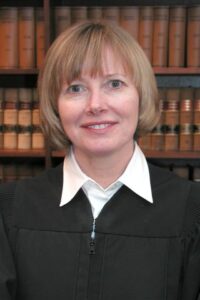
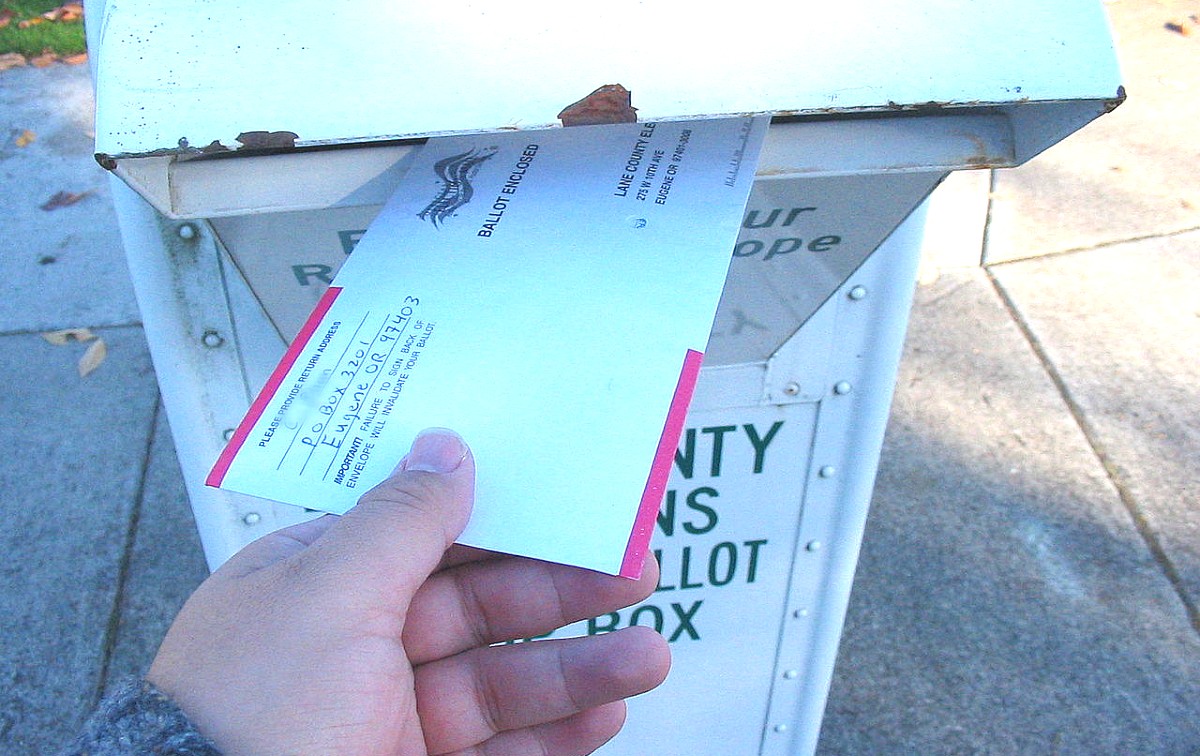

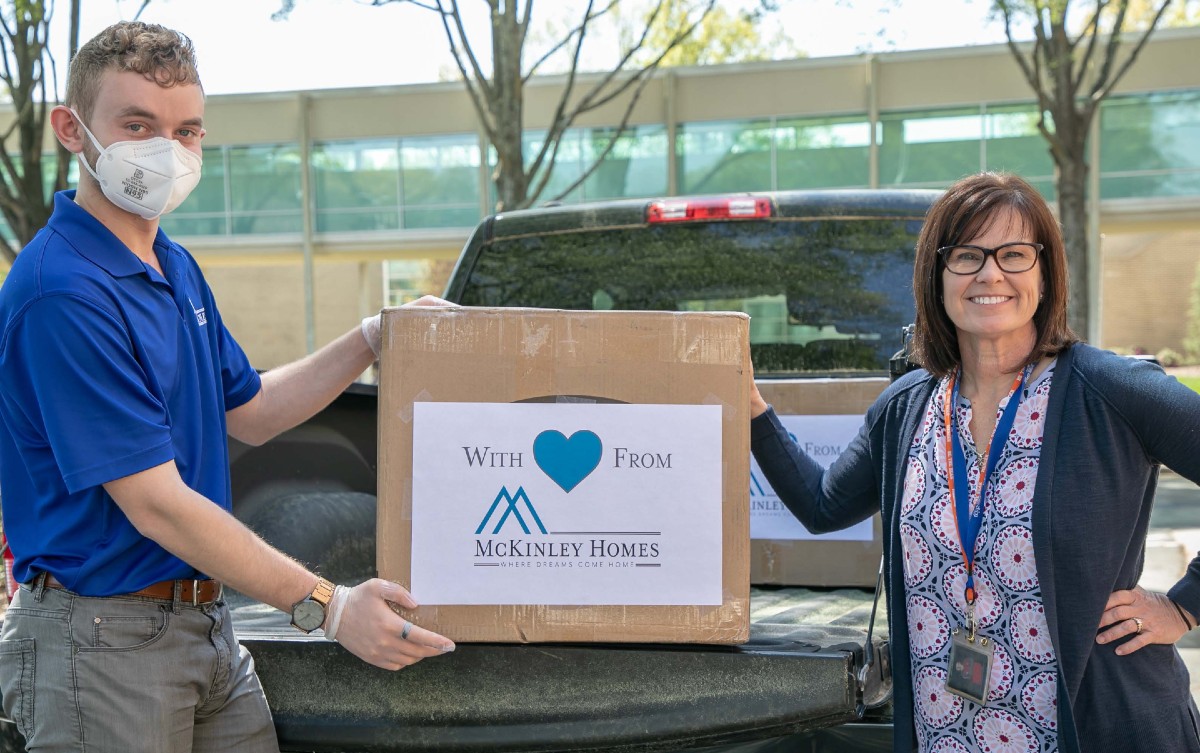
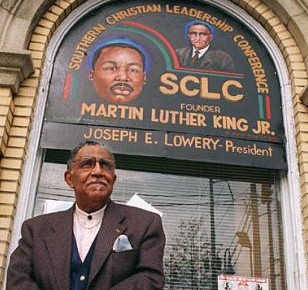
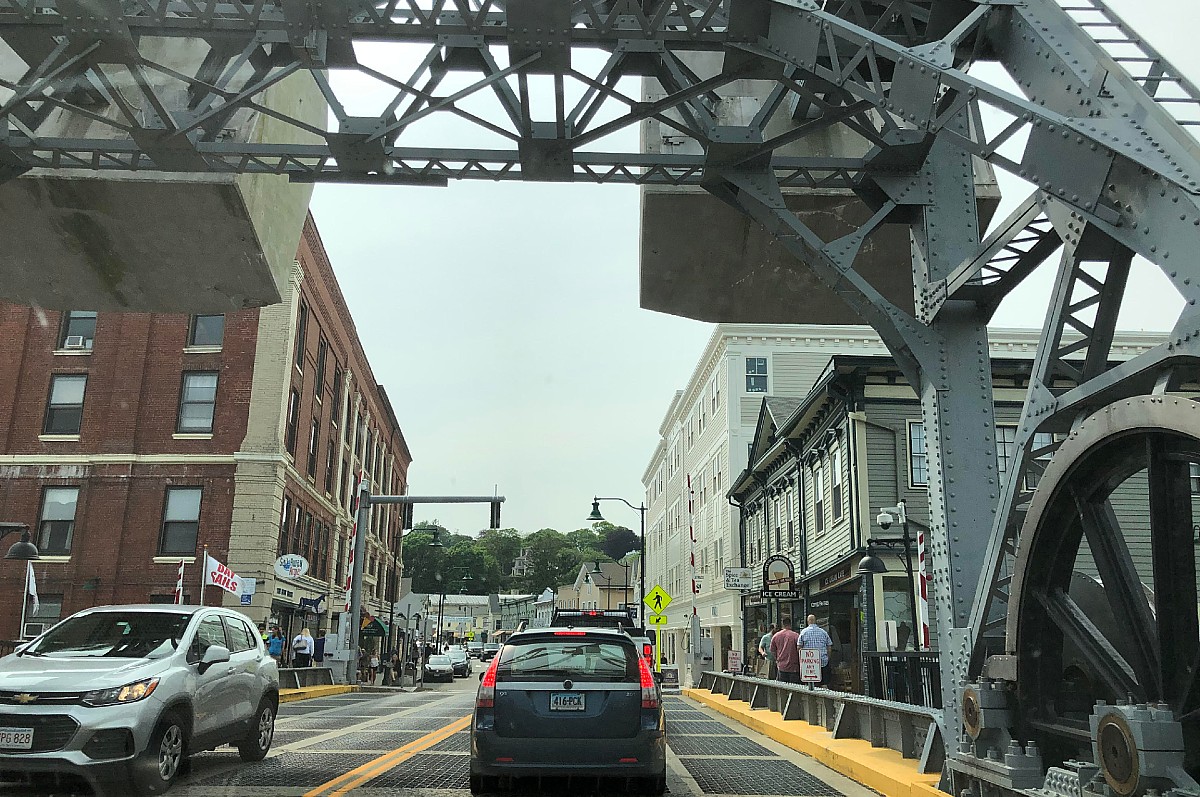







Follow Us